Dear changemakers, thank you for all that you’ve done this year.
Reflecting on 2024, we endured yet another year filled with climate catastrophes, political unrest and international inequality. But even through these challenging times we can find hope in our collective actions and victories, no matter how big or small. Together, we can pave the way forward towards a better future.
Dear Earth, thank you for continuing to show up every day for us.
Across the globe, people took bold steps to care for the planet. 2024 showed us the strength of coming together with purpose and passion. These efforts may not solve every challenge overnight, but they are the building blocks of creating lasting change.
Dear Earth citizens, we invite you to take moments to appreciate living on this planet.
The journey that we are on is a long one, so friends, take care of yourself as we heal the world together. What lies ahead may not be easy, but as we continue to show up, make our voices heard and hold polluters accountable we must not forget to take care of ourselves, our peers and our communities.
Dear all, we hope that you’ll join us on this journey towards a better future, taking care of our planet, ourselves and each other.
With courage as our compass and optimism as our fuel, here are some of the top victories of 2024 for people and the planet to inspire us to keep taking action.
United Kingdom. Shell backs down in lawsuit against Greenpeace
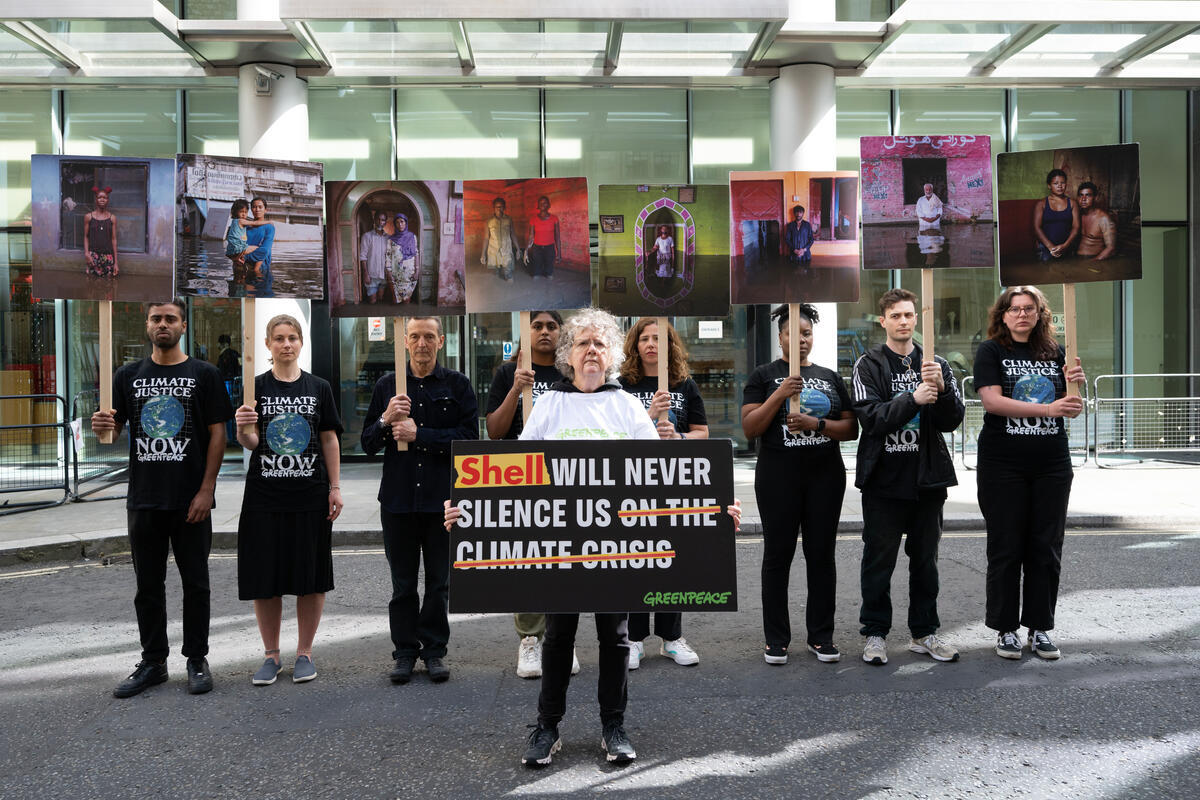
In February 2023, Shell launched a multi-million dollar lawsuit against Greenpeace UK and Greenpeace International over a peaceful protest. But with our supporters behind us, we showed Shell their bullying tactics won’t intimidate us – and now they’ve backed down and agreed to settle out of court. People power works – this campaign was fought with the support of thousands of ordinary people against one of the richest companies in the world.
This legal battle might be over, but Big Oil’s dirty tricks aren’t going away. With Greenpeace facing further lawsuits around the world, we won’t stop campaigning until the fossil fuel industry stops drilling and starts paying for the damage it is causing to people and the planet.
Norway. Arctic deep sea mining plans stopped
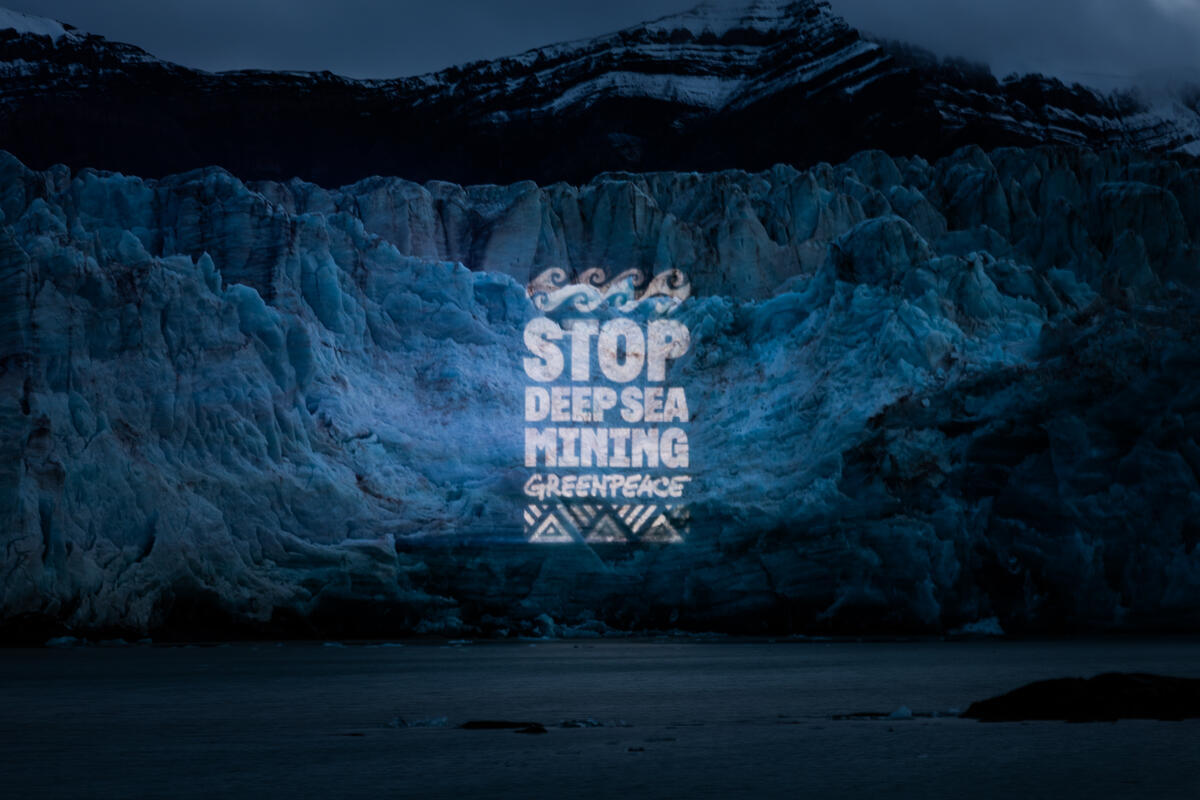
Huge win for the ocean as Arctic deep sea mining plans are stopped in Norway! After more than a year of decisive campaign work and massive pressure from activists, scientists and the international community, the Norwegian government has agreed to stop the first licensing round for deep sea mining in Arctic waters for at least the rest of their term in office, until the next election.
This is a major and important environmental victory which shows that mobilisation and people power works.
Indonesia. Measures to regulate labour standards for fishing vessels adopted

After years of discussions, rejections, objections and negotiations involving governments, civil society organisations including Greenpeace Indonesia, and unions representing migrant fishers, the Western and Central Pacific Fisheries Commission (WCPFC) finally adopted the Conservation and Management Measures (CMM) for Crew Labor Standards on 3 December 2024.
The WCPFC oversees fish population management, promotes sustainable fishing practices, and implements conservation measures. This decision underscores their commitment to ensure the well-being of crew in an industry that suffers from serious labour abuses.
Oceans. Deep sea miners’ efforts to limit the right to protest at sea rejected
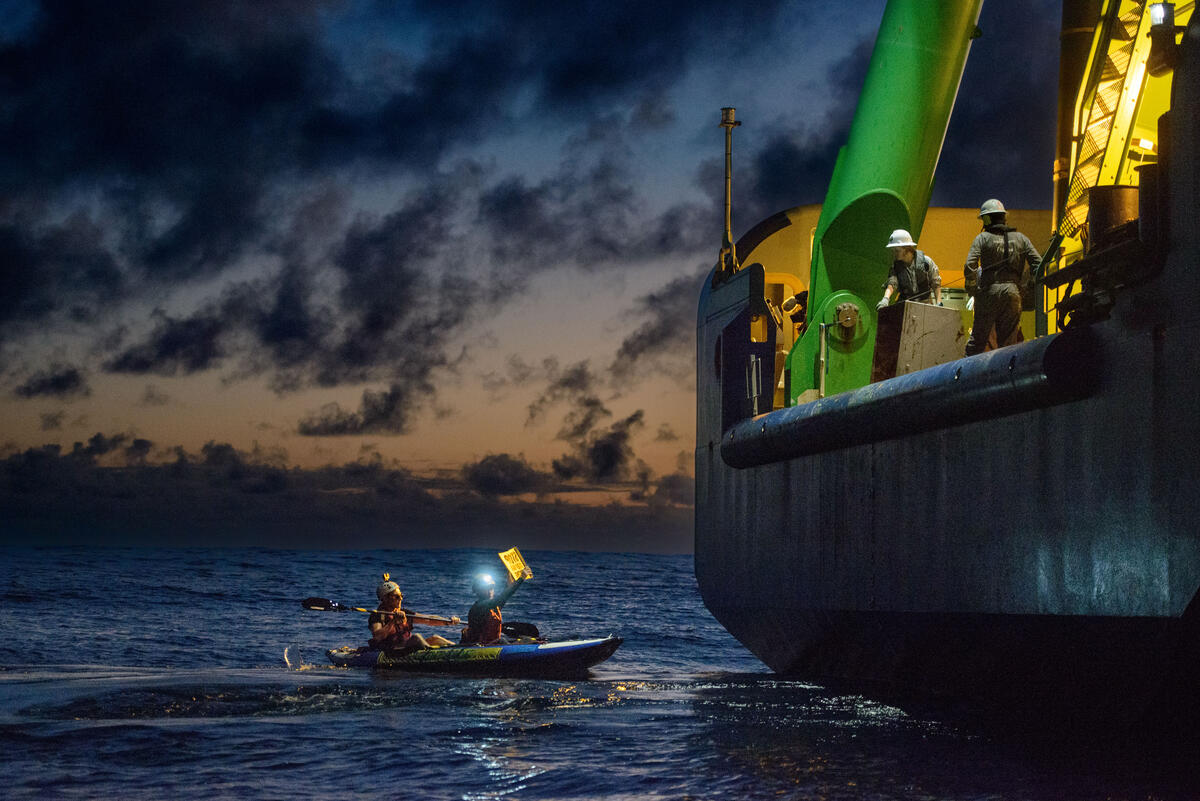
Over the last year, The Metals Company and its enablers have repeatedly tried to silence the global wave of resistance. After failing to get an injunction that stopped the action at sea, and unsuccessfully lobbying governments to limit protests around deep sea mining vessels at the International Seabed Authority in March, the company pursued an appeal at the Amsterdam Court of Appeal to try and secure immunity against future Greenpeace protests at sea. But thanks to the incredible work of Greenpeace International’s legal unit, on 12 November 2024, the court ruled once more in our favour, reaffirming our right to peaceful protest at sea.
Brazil. Sawré Muybu territory officially demarcated
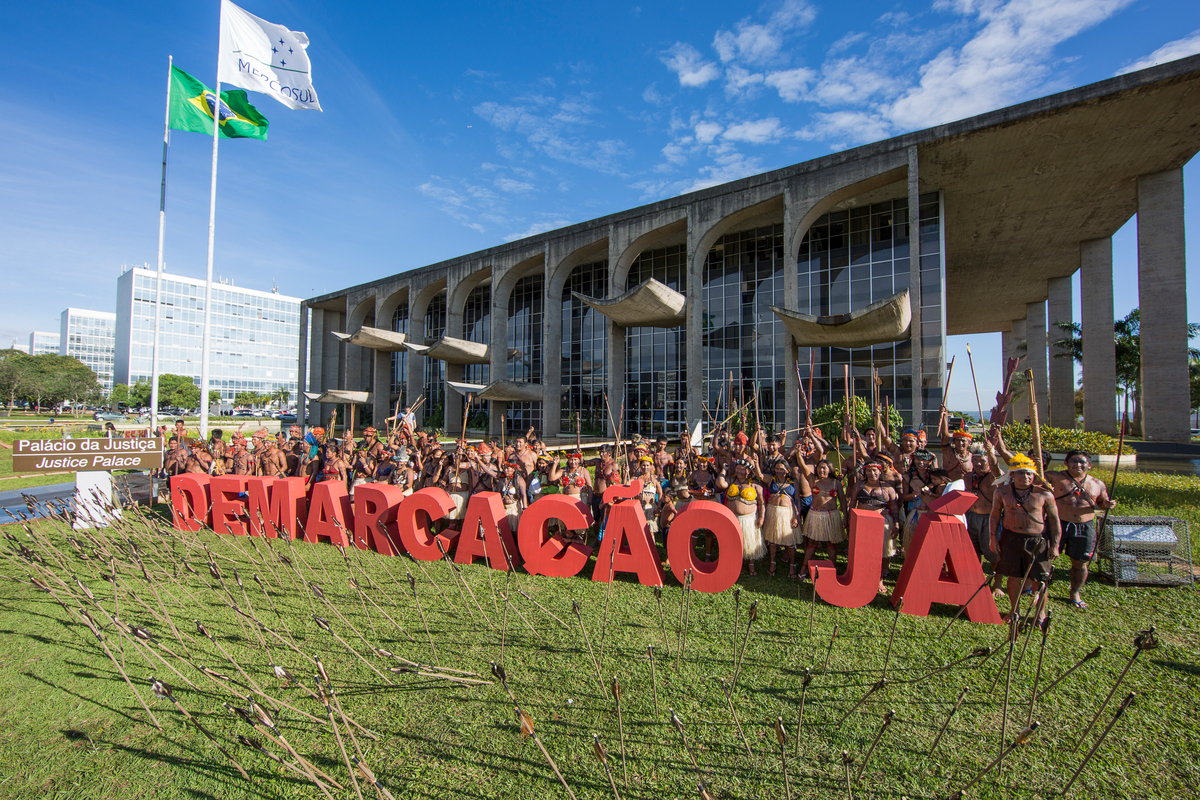
On 25 September 2024, the Sawré Muybu territory in the Tapajós River Basin in the heart of the Amazon rainforest was officially demarcated. The Munduruku People have been fighting for the rights to a land that has always belonged to them but is threatened by mining, illegal logging, and infrastructure projects. This is a historic and profoundly symbolic victory not only for the Munduruku, but for all Indigenous Peoples of the Amazon and Brazil.
South Korea. Top court ruled the country’s carbon neutrality law as unconstitutional
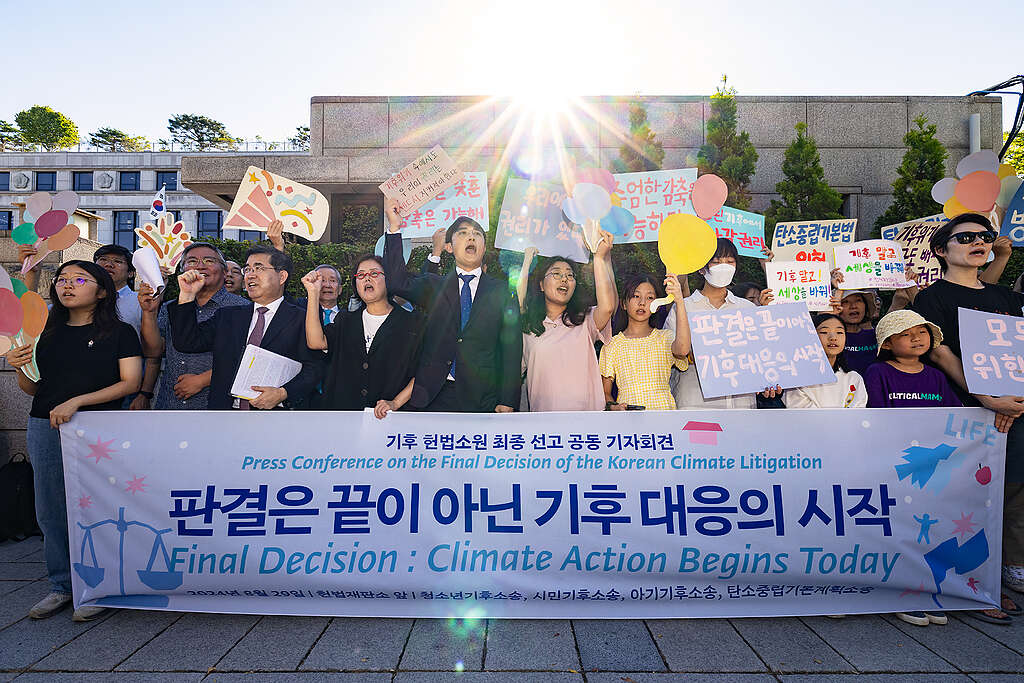
On 29 August 2024, South Korea’s Constitutional Court ruled the country’s carbon neutrality law as unconstitutional for violating citizen’s rights – making it the first ruling of its kind in Asia! The petition was filed in 2020 by over 200 plaintiffs, including young activists and even infants, and is Asia’s first climate court case targeting a country’s carbon neutrality commitments. This is a major climate win for future generations, and could potentially set a precedent in the region for other climate cases.
Australia. Woolworths and McDonald’s commit to going deforestation-free
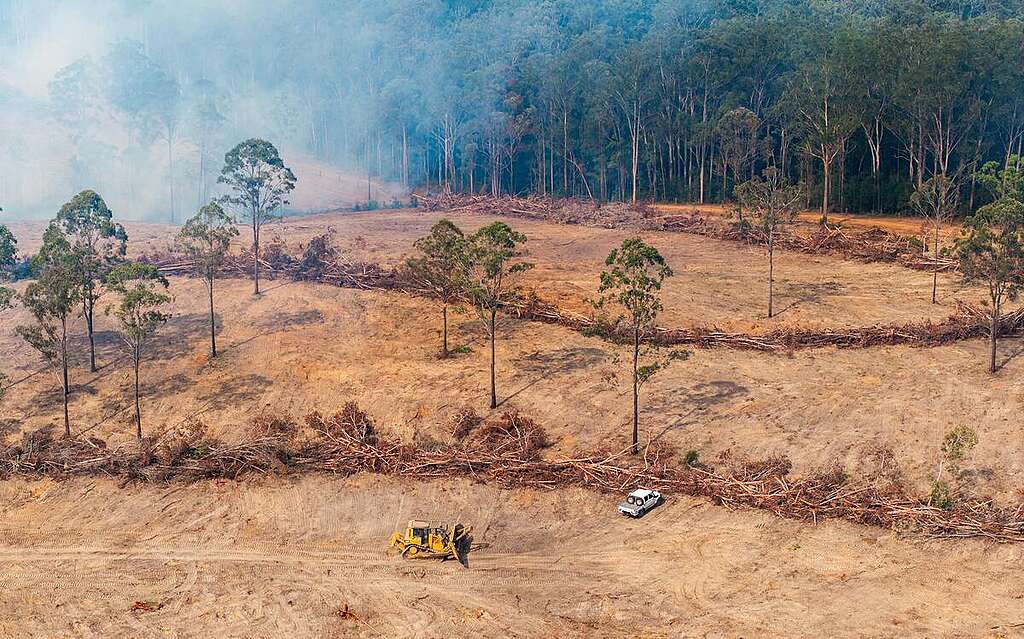
Woolworths and McDonald’s in Australia announced their commitments to source deforestation-free beef. Woolworths will do so by the end of 2025 but McDonald’s will implement theirs by 2030 (Greenpeace Australia Pacific will continue to engage with McDonald’s to ensure they commit to taking deforestation off the menu – by 2025!). These two giant corporations are some of Australia’s biggest retailers and major buyers of Australian beef.
This is a major example of people power as Greenpeace Australia Pacific supporters had sent the big corporations thousands of emails, demanding they go deforestation-free.
Global. Breakthrough for global tax justice
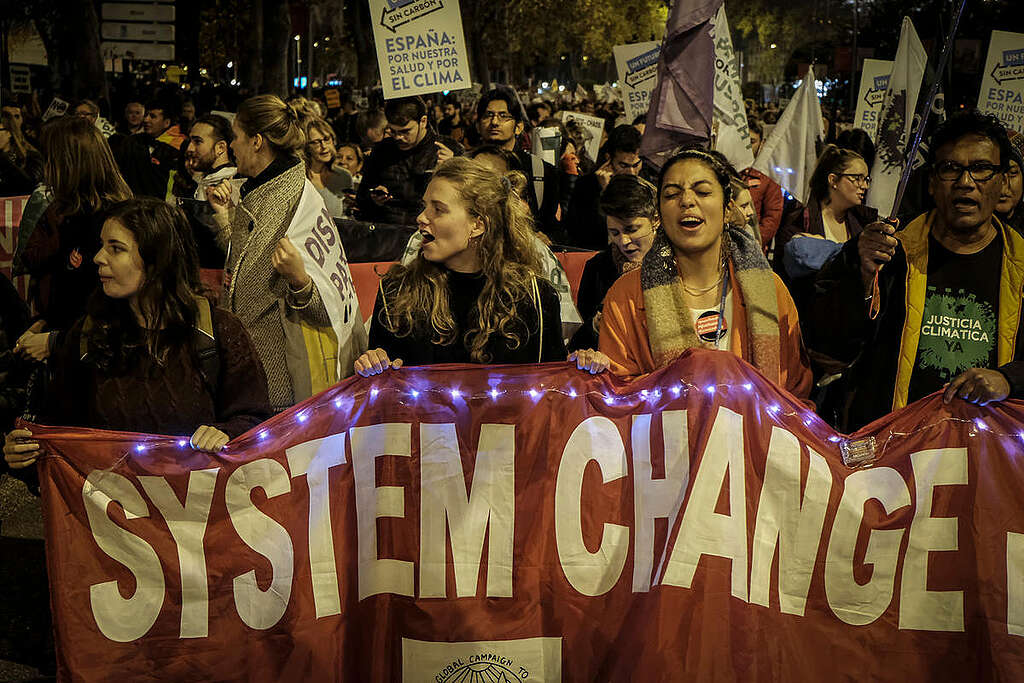
In a big win for global tax justice, a favourable blueprint for a UN Tax Convention that will pave the way for a fair and efficient global tax system was laid out in August. An inclusive tax cooperation system will shift power from a few rich OECD countries to the UN where every country has a vote and help governments around the world recover the billions lost to tax dodging by multinational corporations and the ultra-rich. There is still much to do to keep up the pressure as negotiations will continue until 2027.
South Africa. Shell loses appeal in case halting plans for oil and gas exploration
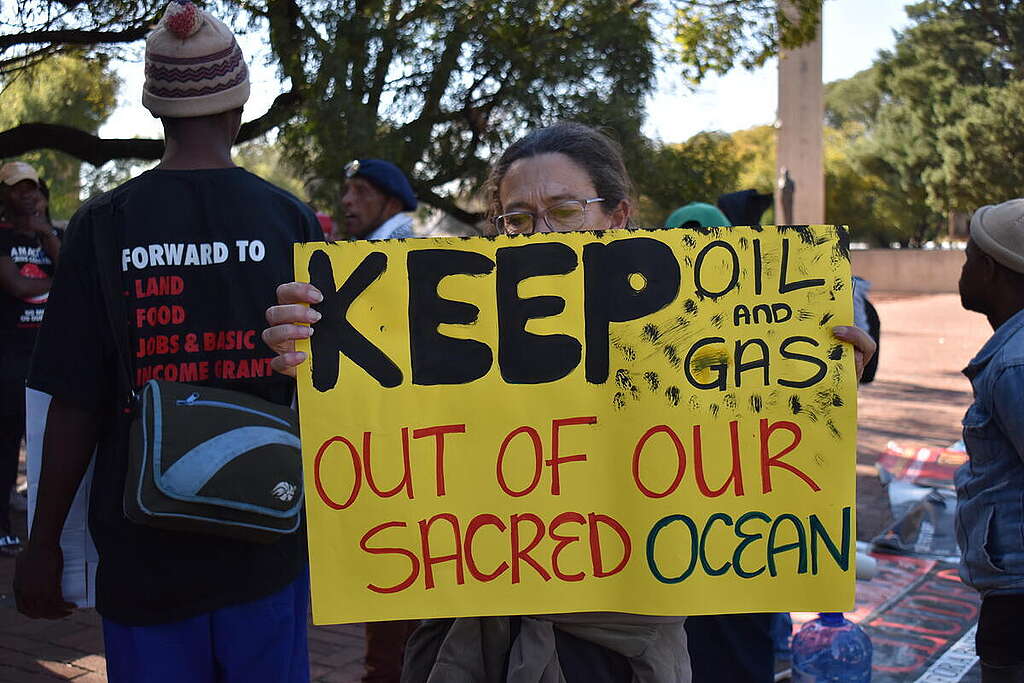
Big win against Shell in South Africa! After protests by the community and fishers, Shell loses its appeal against the landmark decision in 2022 which ruled against their plans to conduct oil and gas exploration off the Wild Coast of South Africa. The court says Shell failed to properly inform and consult affected communities, taking into account community rights and environmental harm. Unfortunately, the fight is not yet over as the court has left the door open for Shell’s application to renew its exploration right. Together with allies and the community, Greenpeace Africa is resolute in continuing to fight to stop Big Oil from exploiting the planet for its own profit.
Papua. Major land rights win for Indigenous Peoples
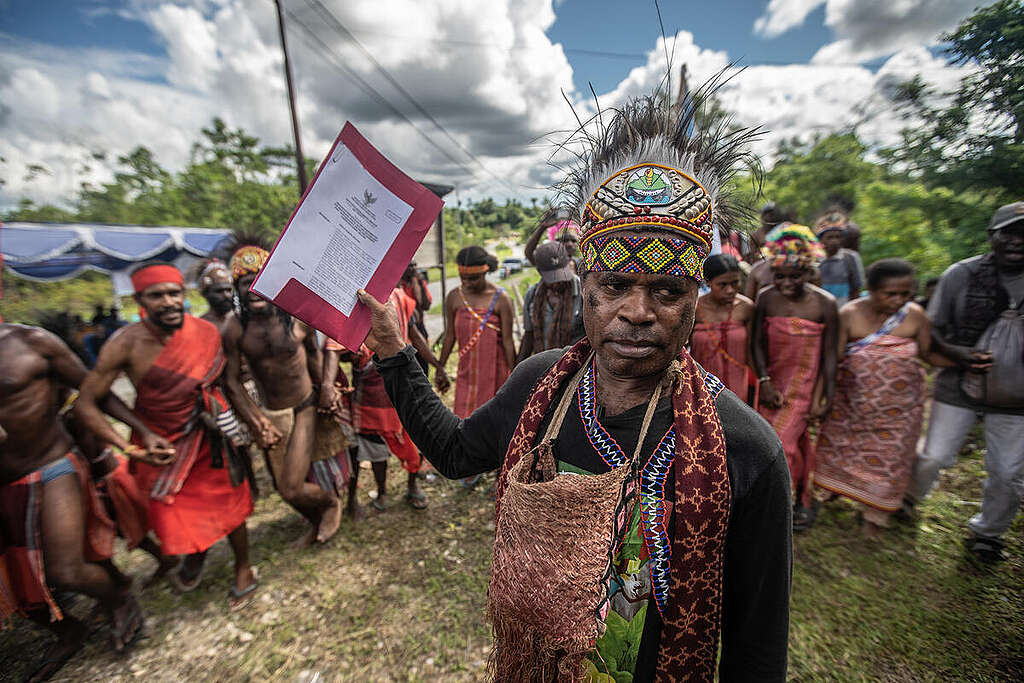
On 6 June, 4000 Indigenous Papuans finally received legal recognition of customary rights over 97,411 hectares of tropical rainforests in South Sorong Regency. The newly recognised Indigenous lands of the Knasaimos Peoples spans an area almost the size of Hong Kong.
As with many Indigenous communities across Tanah Papua (the western half of New Guinea, also known internationally as West Papua), the Knasaimos Peoples have been fighting for decades to protect their customary lands from exploitation by external interests such as logging and plantation companies. Today’s ruling finally provides legal recognition of their rights to the land, forests, water, and other natural resources that are their ancestral heritage.
Oceans. World’s highest oceans court ruling to protect our oceans
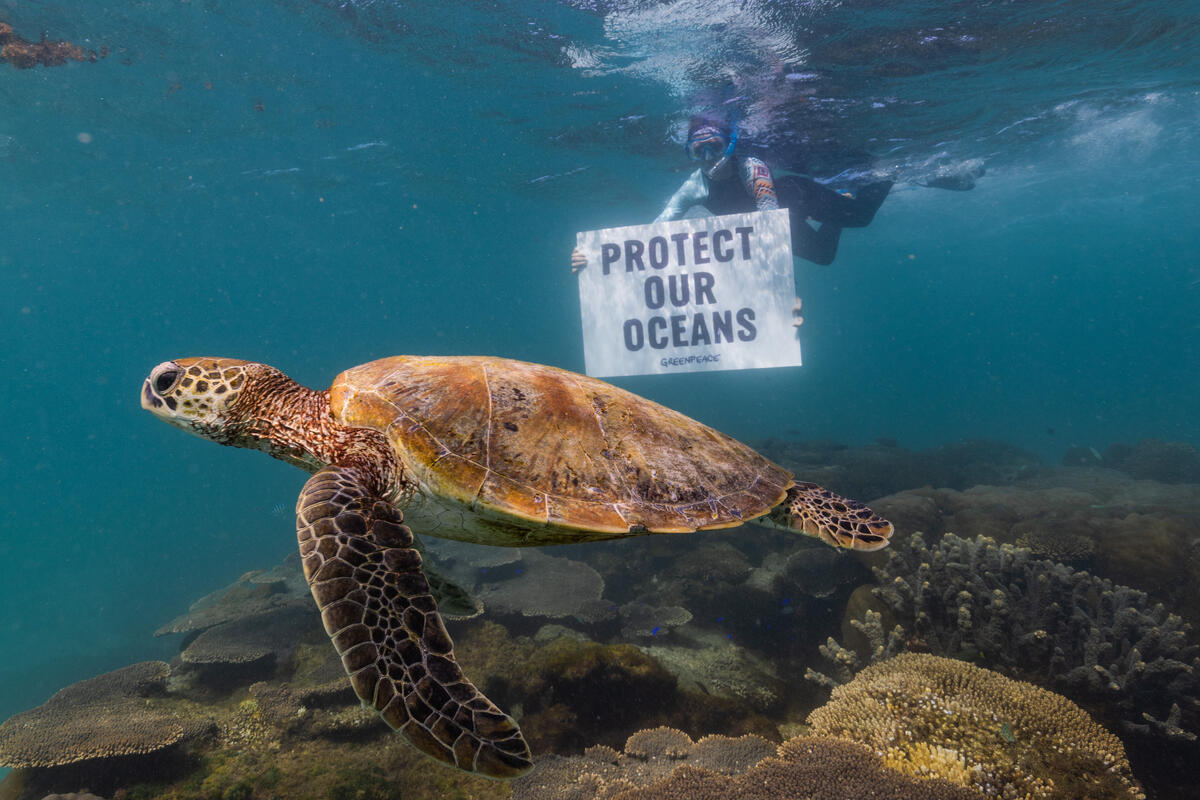
In a historic Advisory Opinion, the International Tribunal for the Law of the Sea (ITLOS), the world’s highest oceans court, found that greenhouse gas emissions are a form of marine pollution and countries are obligated to reduce emissions for the sake of our oceans. The ruling is a huge victory in the protection and preservation of the marine environment.
Europe. European Nature Restoration Law passed
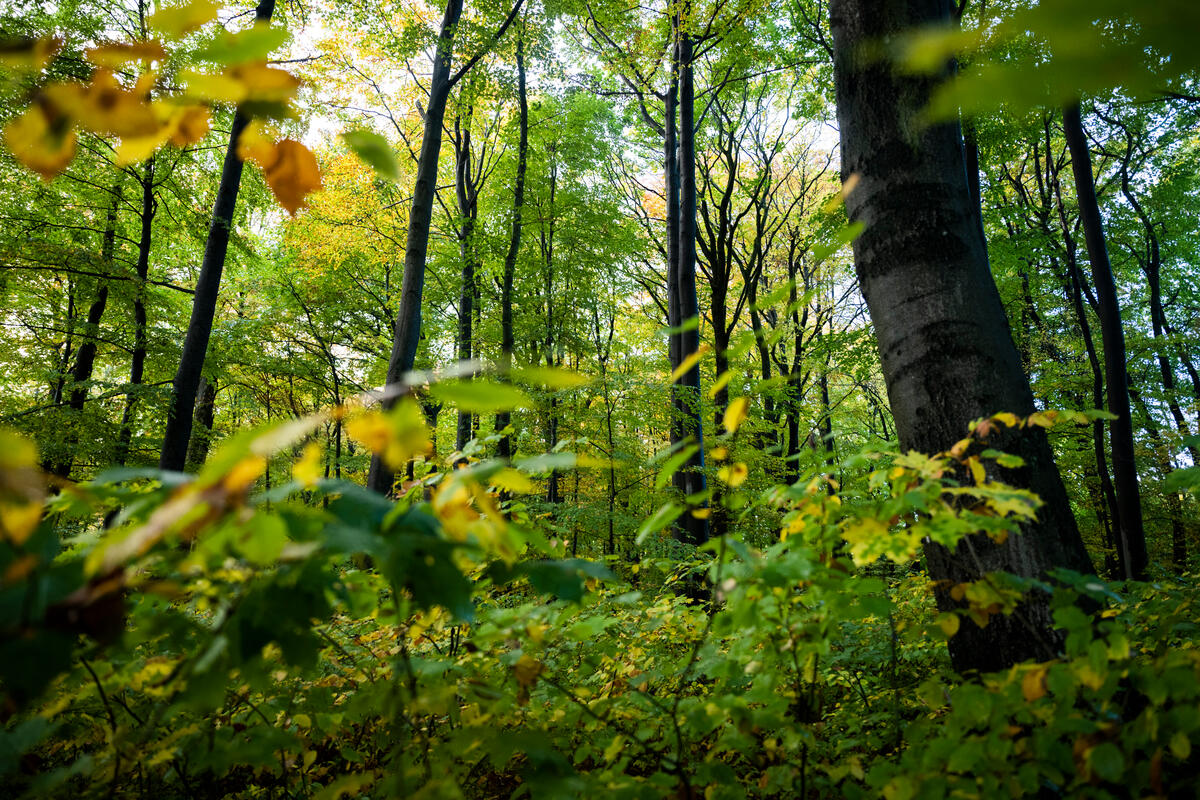
The European Nature Restoration Law was passed and has come into effect! This law is the most important piece of environmental legislation in Europe in decades, aiming to restore and protect European biodiversity hotspots. It imposes unprecedented legally binding obligations onto EU Member States to restore protected nature reserves, peatlands, and dwindling bird and pollinator populations, and protect urban nature amongst others. This is a huge win for the nature movement in Europe!
Switzerland. Historic court win confirms that climate protection is a human right
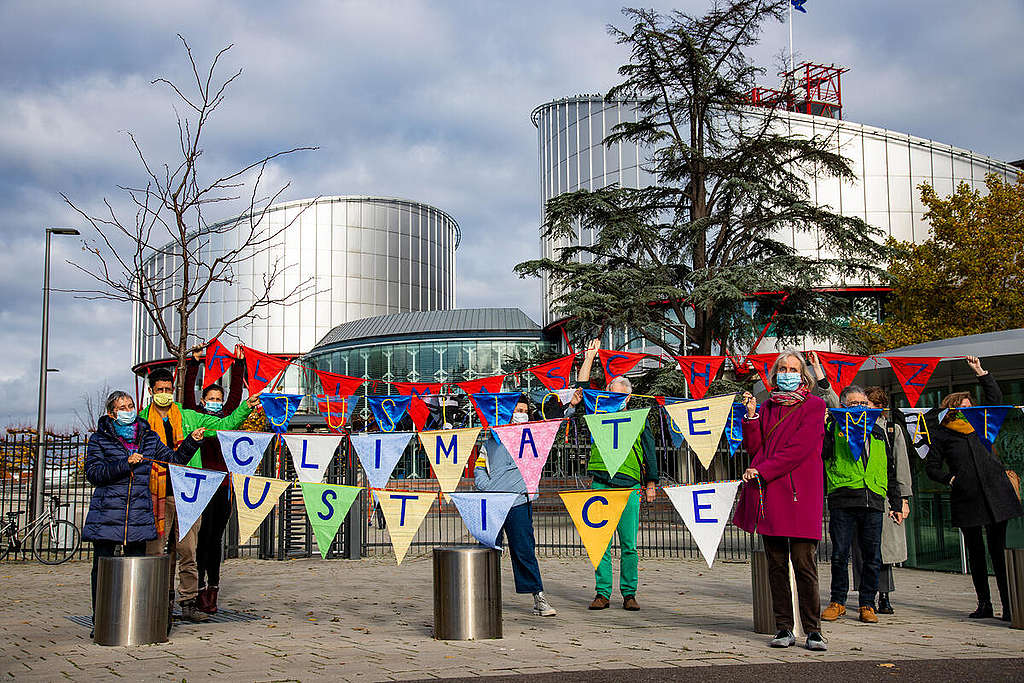
The Association of Senior Women for Climate Protection Switzerland, also known as the KlimaSeniorinnen, took action against their country, Switzerland, for violating the seniors’ human rights by failing to set sufficient climate targets. On 9 April, they received the landmark decision of the European Court of Human Rights (ECtHR), achieving a historic victory for all generations. The ruling is an iconic moment for climate justice globally, confirming that climate protection is a human right.
Caroline Wagner is Programme Support Manager for the European Collaboration at Greenpeace Germany. Francesca Cresta is Executive and Governance Assistant at Greenpeace Italy. Tan Lee Kuen is a content editor with Greenpeace International.
Page 2
Dear changemakers, thank you for all that you’ve done this year.
Reflecting on 2024, we endured yet another year filled with climate catastrophes, political unrest and international inequality. But even through these challenging times we can find hope in our collective actions and victories, no matter how big or small. Together, we can pave the way forward towards a better future.
Dear Earth, thank you for continuing to show up every day for us.
Across the globe, people took bold steps to care for the planet. 2024 showed us the strength of coming together with purpose and passion. These efforts may not solve every challenge overnight, but they are the building blocks of creating lasting change.
Dear Earth citizens, we invite you to take moments to appreciate living on this planet.
The journey that we are on is a long one, so friends, take care of yourself as we heal the world together. What lies ahead may not be easy, but as we continue to show up, make our voices heard and hold polluters accountable we must not forget to take care of ourselves, our peers and our communities.
Dear all, we hope that you’ll join us on this journey towards a better future, taking care of our planet, ourselves and each other.
With courage as our compass and optimism as our fuel, here are some of the top victories of 2024 for people and the planet to inspire us to keep taking action.
United Kingdom. Shell backs down in lawsuit against Greenpeace

In February 2023, Shell launched a multi-million dollar lawsuit against Greenpeace UK and Greenpeace International over a peaceful protest. But with our supporters behind us, we showed Shell their bullying tactics won’t intimidate us – and now they’ve backed down and agreed to settle out of court. People power works – this campaign was fought with the support of thousands of ordinary people against one of the richest companies in the world.
This legal battle might be over, but Big Oil’s dirty tricks aren’t going away. With Greenpeace facing further lawsuits around the world, we won’t stop campaigning until the fossil fuel industry stops drilling and starts paying for the damage it is causing to people and the planet.
Norway. Arctic deep sea mining plans stopped

Huge win for the ocean as Arctic deep sea mining plans are stopped in Norway! After more than a year of decisive campaign work and massive pressure from activists, scientists and the international community, the Norwegian government has agreed to stop the first licensing round for deep sea mining in Arctic waters for at least the rest of their term in office, until the next election.
This is a major and important environmental victory which shows that mobilisation and people power works.
Indonesia. Measures to regulate labour standards for fishing vessels adopted

After years of discussions, rejections, objections and negotiations involving governments, civil society organisations including Greenpeace Indonesia, and unions representing migrant fishers, the Western and Central Pacific Fisheries Commission (WCPFC) finally adopted the Conservation and Management Measures (CMM) for Crew Labor Standards on 3 December 2024.
The WCPFC oversees fish population management, promotes sustainable fishing practices, and implements conservation measures. This decision underscores their commitment to ensure the well-being of crew in an industry that suffers from serious labour abuses.
Oceans. Deep sea miners’ efforts to limit the right to protest at sea rejected

Over the last year, The Metals Company and its enablers have repeatedly tried to silence the global wave of resistance. After failing to get an injunction that stopped the action at sea, and unsuccessfully lobbying governments to limit protests around deep sea mining vessels at the International Seabed Authority in March, the company pursued an appeal at the Amsterdam Court of Appeal to try and secure immunity against future Greenpeace protests at sea. But thanks to the incredible work of Greenpeace International’s legal unit, on 12 November 2024, the court ruled once more in our favour, reaffirming our right to peaceful protest at sea.
Brazil. Sawré Muybu territory officially demarcated

On 25 September 2024, the Sawré Muybu territory in the Tapajós River Basin in the heart of the Amazon rainforest was officially demarcated. The Munduruku People have been fighting for the rights to a land that has always belonged to them but is threatened by mining, illegal logging, and infrastructure projects. This is a historic and profoundly symbolic victory not only for the Munduruku, but for all Indigenous Peoples of the Amazon and Brazil.
South Korea. Top court ruled the country’s carbon neutrality law as unconstitutional

On 29 August 2024, South Korea’s Constitutional Court ruled the country’s carbon neutrality law as unconstitutional for violating citizen’s rights – making it the first ruling of its kind in Asia! The petition was filed in 2020 by over 200 plaintiffs, including young activists and even infants, and is Asia’s first climate court case targeting a country’s carbon neutrality commitments. This is a major climate win for future generations, and could potentially set a precedent in the region for other climate cases.
Australia. Woolworths and McDonald’s commit to going deforestation-free

Woolworths and McDonald’s in Australia announced their commitments to source deforestation-free beef. Woolworths will do so by the end of 2025 but McDonald’s will implement theirs by 2030 (Greenpeace Australia Pacific will continue to engage with McDonald’s to ensure they commit to taking deforestation off the menu – by 2025!). These two giant corporations are some of Australia’s biggest retailers and major buyers of Australian beef.
This is a major example of people power as Greenpeace Australia Pacific supporters had sent the big corporations thousands of emails, demanding they go deforestation-free.
Global. Breakthrough for global tax justice

In a big win for global tax justice, a favourable blueprint for a UN Tax Convention that will pave the way for a fair and efficient global tax system was laid out in August. An inclusive tax cooperation system will shift power from a few rich OECD countries to the UN where every country has a vote and help governments around the world recover the billions lost to tax dodging by multinational corporations and the ultra-rich. There is still much to do to keep up the pressure as negotiations will continue until 2027.
South Africa. Shell loses appeal in case halting plans for oil and gas exploration

Big win against Shell in South Africa! After protests by the community and fishers, Shell loses its appeal against the landmark decision in 2022 which ruled against their plans to conduct oil and gas exploration off the Wild Coast of South Africa. The court says Shell failed to properly inform and consult affected communities, taking into account community rights and environmental harm. Unfortunately, the fight is not yet over as the court has left the door open for Shell’s application to renew its exploration right. Together with allies and the community, Greenpeace Africa is resolute in continuing to fight to stop Big Oil from exploiting the planet for its own profit.
Papua. Major land rights win for Indigenous Peoples

On 6 June, 4000 Indigenous Papuans finally received legal recognition of customary rights over 97,411 hectares of tropical rainforests in South Sorong Regency. The newly recognised Indigenous lands of the Knasaimos Peoples spans an area almost the size of Hong Kong.
As with many Indigenous communities across Tanah Papua (the western half of New Guinea, also known internationally as West Papua), the Knasaimos Peoples have been fighting for decades to protect their customary lands from exploitation by external interests such as logging and plantation companies. Today’s ruling finally provides legal recognition of their rights to the land, forests, water, and other natural resources that are their ancestral heritage.
Oceans. World’s highest oceans court ruling to protect our oceans

In a historic Advisory Opinion, the International Tribunal for the Law of the Sea (ITLOS), the world’s highest oceans court, found that greenhouse gas emissions are a form of marine pollution and countries are obligated to reduce emissions for the sake of our oceans. The ruling is a huge victory in the protection and preservation of the marine environment.
Europe. European Nature Restoration Law passed

The European Nature Restoration Law was passed and has come into effect! This law is the most important piece of environmental legislation in Europe in decades, aiming to restore and protect European biodiversity hotspots. It imposes unprecedented legally binding obligations onto EU Member States to restore protected nature reserves, peatlands, and dwindling bird and pollinator populations, and protect urban nature amongst others. This is a huge win for the nature movement in Europe!
Switzerland. Historic court win confirms that climate protection is a human right

The Association of Senior Women for Climate Protection Switzerland, also known as the KlimaSeniorinnen, took action against their country, Switzerland, for violating the seniors’ human rights by failing to set sufficient climate targets. On 9 April, they received the landmark decision of the European Court of Human Rights (ECtHR), achieving a historic victory for all generations. The ruling is an iconic moment for climate justice globally, confirming that climate protection is a human right.
Caroline Wagner is Programme Support Manager for the European Collaboration at Greenpeace Germany. Francesca Cresta is Executive and Governance Assistant at Greenpeace Italy. Tan Lee Kuen is a content editor with Greenpeace International.

No comments:
Post a Comment